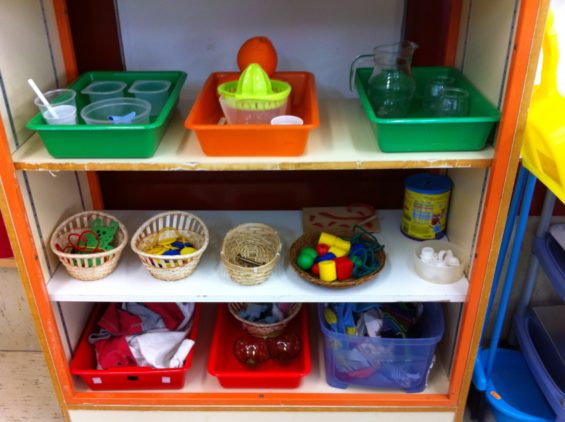“The work of a child,” Dr. Montessori wrote, “is to create the man who will become. An adult works to perfect the environment, but a child works to perfect himself.”
This distinction can be illustrated by looking closely at two people who shovel the sand on a beach on a hot day. One of them is a man who is trying to fill a large barrel with sand; the other, a little boy, who is filling a bucket with sand, pouring out, and then filled again. If someone offers to help, the man gives easily on the blade; but that is different with the child. He clings to his shovel because the work he is doing can be done only by himself. By constant repetition of movements, he is strengthening muscles, improving coordination and gaining confidence in a particular skill. Nobody says he has to shovel the sand; the direction is guided by deep in his own nature.
About the use of the natural inclinations of the child as a starting point, Dr. Montessori structured several exercises for the classroom to help children meeting their need for meaningful activity. For these exercises she used familiar objects such as buttons, brushes, plates, jugs, water and many other things that the child recognizes from experience in the house. For young children there is something special about the tasks that an adult considers ordinary: washing dishes, cut the celery and polishing shoes. These tasks are very interesting for children because they are the ones that allow you to imitate adults. Imitation is one of the strongest impulses of children during their early years.
Several practical life exercises involve the use of water, the element that most children naturally like to play with. Bring the water in a jar and pour it into a basin helps children improve their coordination. As the child becomes absorbed in an activity like cleaning a table his range of concentration is progressively stretched. He also learns to pay attention to details and following a regular sequence of actions. Finally, he learns good work habits when he finishes each task and keeps all the material before starting another activity.
Although practical life exercises may seem simple and common, in fact they are a very important part of the Montessori program. Each of the tasks helps the child to perfect his coordination in order to be able to work with more complex academic subjects. Learning does not take place without concentration and attention. The child prepares himself to learn by performing exercises that help to gradually lengthen the time where he can focus his attention on a specific activity.







No Comments Yet